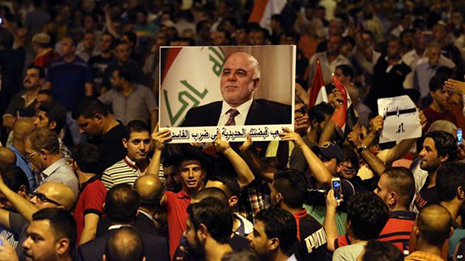Iraq reforms: Parliament backs PM Haider al-Abadi`s plan

Under the plan, Mr Abadi will cut spending and eliminate senior posts.
It follows recent anti-government protests over an unreliable electricity supply amid a major heatwave.
Thousands of people have turned out in Baghdad and other cities to vent their anger at the authorities and pressurise them to make changes.
Unbearable conditions
Iraq`s system of sharing government jobs has long been criticised for promoting unqualified candidates and encouraging corruption.
The country has three vice-presidents - two from the Shia Muslim majority and one from the Sunni Muslim minority - and three deputy prime ministers - a Shia, a Sunni and a Kurd (also a Sunni).
As a result of the reforms, senior political appointments will no longer be based on sectarian or party quotas, and the posts of vice-president and deputy PM will be abolished.
Mr Abadi`s seven-point plan also includes a requirement for a number of government positions to be filled with political independents - a move aimed at cracking down on corruption.
Officials` benefits will also be reduced.
The changes come after weeks of protests by voters angry at the way the country is governed and at the lack of investment in infrastructure.
In some areas of Iraq it is common to have only a few hours of electricity each day.
Tensions have become particularly fraught during a heatwave that has seen temperatures rise to 51C (123F).
Frequent power cuts have made the sweltering conditions even more unbearable.
Many Iraqis have cautiously welcomed the passing of the reform package, seen as a victory for Mr Abadi.
But he still faces pressure to ensure the measures are properly implemented.
Mr Juburi said a complementary plan containing even more reforms was needed, and called on Mr Abadi to sack ministers who were guilty of negligence and corruption.















































